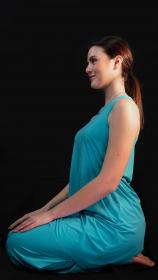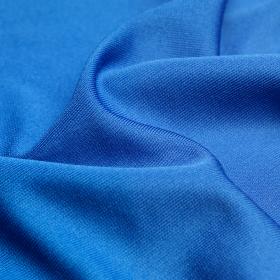Innova Fabrics chooses ROICA
- ROICA™ V550 by Asahi Kasei for its responsible RF (Residual Free) line
Innova Fabrics, the Italian manufacturer of knitted fabrics for apparel, underwear and sports, confirms its choice of ROICA™ by Asahi Kasei, the Japanese leader of premium stretch fiber, for its new responsible line RF (Residual Free).
Despite the deep-rooted history of the company's team in the world of textiles, Innova Fabrics is a reality that is not afraid to innovate with a focus on environmental sustainability. As a result of its push for local production and attention to third-party sustainability certifications (including OEKO-TEX Standard 100, one of the world's best-known labels for textiles tested for harmful substances), Innova Fabrics continues its promise of responsibility with an enrichment of its conscious proposals. In the last season, Innova has increased its smart proposition by launching the RF (Residual Free) line, with the aim of reducing the impact of microplastics residues produced by the fashion industry. This is possible thanks to the combination of two responsible ingredients: SENSIL® Biocare by Nilit and ROICA™ V550 by Asahi Kasei.
SENSIL® BioCare is the premium, sustainable nylon 6.6 fiber enriched with a special technology that helps reduce the persistence of textile waste in the ocean and landfills by acting during and after the product's life cycle. Therefore, if the microplastics in SENSIL® BioCare garments are released during washing, they will decompose much faster than conventional Nylon 6.6 fibers, reducing textile waste. ROICA™ V550, part of the ROICA Eco-Smart™ family, is the premium, sustainable stretch yarn that degrades without releasing harmful substances into the environment, according to the Hohenstein's environmental certification. ROICA™ V550 also carries the Gold Level Material Health certificate from the Cradle-to-Cradle Product Innovation Institute, which evaluated the yarn's impact on human and environmental health. The strong relationship established between Innova Fabrics and ROICA™ by Asahi Kasei is a long-standing one: from the very beginning, the textile company chose ROICA™ as its main reference for premium stretch, using ROICA Colour Perfect™ in most of its articles. Having experienced the innovation of the ROICA™ line dedicated to high-quality color, Innova decided to opt for the ROICA Eco-Smart™ line as part of the extension of its environmentally conscious line.
Thanks to the constant synergy with its premium partner in innovative and responsible stretch, Innova continues its path towards a textile and fashion industry that respects the planet, without forgetting profit. And this is just the beginning. Innova Fabrics pieces containing SENSIL® BioCare and ROICA™ V550














